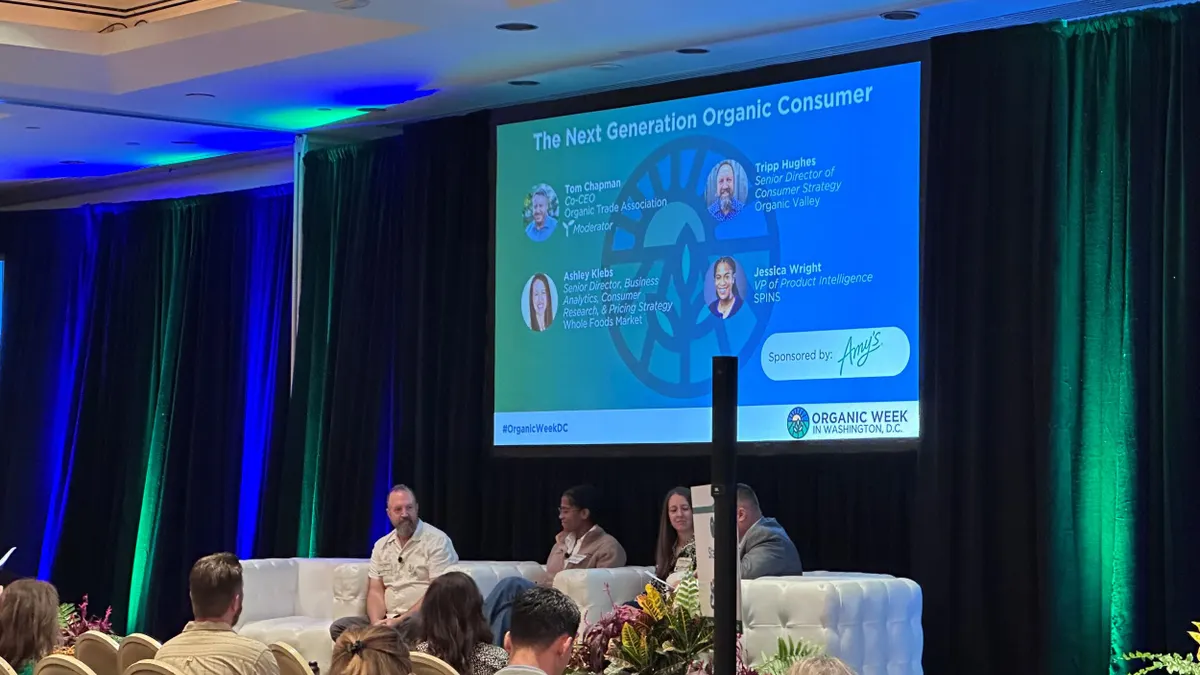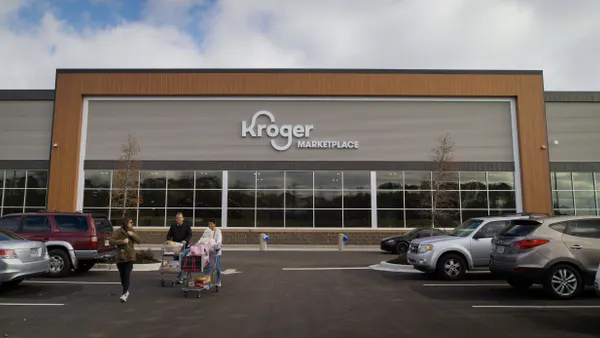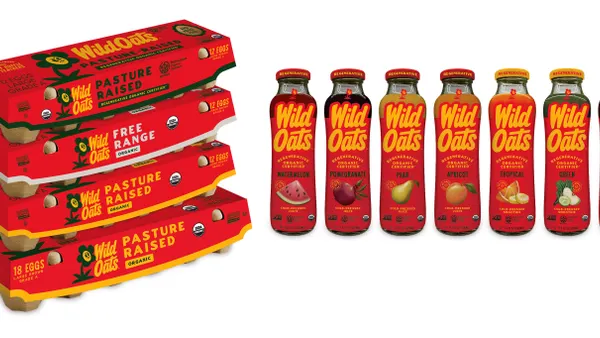WASHINGTON, D.C. — Nearly all households purchase natural and organic products, but grocers would benefit from finding ways to more effectively market organic offerings to Generation Z shoppers, panelists said on Monday at this year’s Organics Week conference.
While this younger generation wants to buy organic foods more frequently, there are roadblocks to convincing Gen Zers to actually direct more of their grocery spending to those products.
Organic has two key attributes working in its favor when it comes to catering to Gen Z values — taste and authenticity, said Ashley Klebs, a senior director of business analytics, consumer research and pricing strategy for Whole Foods Market.
Gen Z views organic foods as having higher quality and better taste than non-organic foods. And with Gen Z being dubbed the “multicultural generation,” how this age cohort defines “taste” is worth following as they continue to place value on it, Klebs said.
As for authenticity, Gen Z’s knowledge baseline of organic goods is higher than that of older generations, Klebs said. So when it comes to organic brands preaching sustainability or social justice practices, Gen Z is going to be “really quick to suss out if a brand’s not living up to their values,” she said, adding that this makes messaging around organic goods — from the supply chain, manufacturer and retailer sides — crucial.
Gen Z’s firmer grasp on defining organic becomes even more important when factoring in that this is the first generation raised by parents who were familiar with the values of organic-grown and raised foods, panel moderator and co-CEO of the Organic Trade Association Tom Chapman said.
Despite organic’s appeal to Gen Z, it’s affordability that often gets in the way of this younger consumer group regularly buying organic foods, Klebs said.
“[Gen Z has] a lot of aspirations, but it’s not necessarily showing up yet in what they’re purchasing,” Klebs said, adding that Gen Z is more likely than older generations to cut back on food spending to save money. “Affordability is key for this group, and [so is] demonstrating how organic can be affordable.”
Compared with millennials, Gen Z skews higher in terms of total organic buyers, but it’s millennials who account for the majority of dollar sales across organic products, primarily because they buy for their families, according to Jessica Wright, vice president of product intelligence for SPINS, a data analytics firm that focuses on the natural and organic food industry.
A way to more consistently encourage Gen Z to shop organic lies in the messaging, according to Klebs.
“[Gen Z] are the most digitally native generation, and their social media usage is unmatched, so we have to ask questions like ‘Do we have a social media strategy? Do we have a presence on these platforms … like TikTok, like YouTube, like Instagram? Are we partnering with influencers?’” Klebs said. “That’s why it’s important to understand those generational trends.”
Klebs added that it’s also valuable to know where Gen Z is learning about organic from besides their grocer, as this informs Whole Foods’ marketing channel strategy and ensures they are answering the right questions as well as partnering with influencers and other outlets younger shoppers are plugged into.
Signage both inside and outside stores, coupled with messaging on product packaging, plays an important role in reaching consumers, Klebs said.
“The consumer has to hear [the organics] message everywhere in order to really internalize it,” Klebs said.











